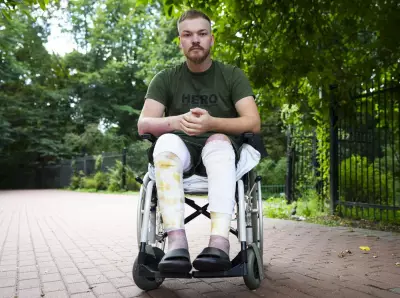
The Trump administration has issued a directive demanding that states reverse full Supplemental Nutrition Assistance Program (SNAP) payments, triggering warnings from state officials about potential catastrophic impacts on vulnerable populations.
Administration's Directive Sparks Concern
In a controversial move that could affect millions of Americans and potentially influence Canadian social policy discussions, the Trump administration has formally instructed state governments to rescind complete SNAP benefit distributions. The order comes amid growing concerns about food insecurity and economic stability.
The directive was issued during a period of significant political activity, including President Donald Trump's meeting with Hungary's Prime Minister Viktor Orban in the White House Cabinet Room on November 7, 2025. Vice President JD Vance was also present during these discussions, though the exact connection between the meeting and the SNAP decision remains unclear.
Potential Consequences for Vulnerable Populations
State officials and social service agencies are sounding alarms about the potential consequences of reversing full SNAP payments. Many warn that reducing or rescinding these benefits could have devastating effects on low-income families, elderly citizens, and disabled individuals who rely on the program for basic nutritional needs.
The timing of this decision is particularly concerning given ongoing economic uncertainties and the approaching winter months, when heating costs typically strain household budgets even further. Food banks and charitable organizations anticipate being overwhelmed if the SNAP reductions proceed as directed.
Broader Implications for Social Safety Nets
This development occurs against a backdrop of various national and international news, including environmental concerns, sports events, and cultural happenings. However, the SNAP decision stands out for its potential to fundamentally alter the social safety net in the United States, with possible ripple effects in Canada where similar social program debates regularly occur.
As states grapple with how to respond to the federal directive, advocacy groups are mobilizing to protect food assistance programs. Legal challenges and legislative responses are expected as the November 2025 deadline for compliance approaches.
The situation continues to develop rapidly, with state governments weighing their options between federal compliance and protecting their most vulnerable residents from what many officials describe as an impending humanitarian crisis.






